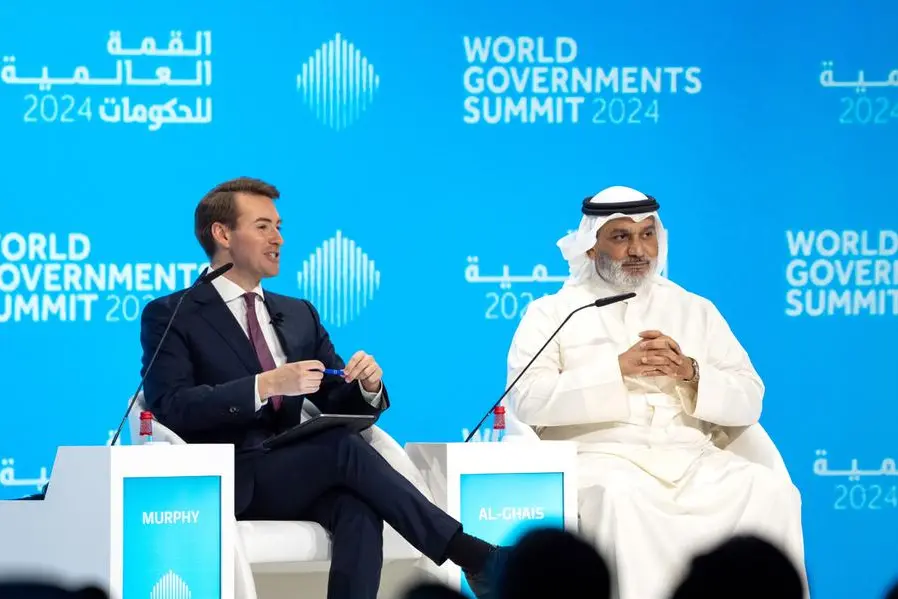PHOTO
The OPEC expects oil demand to rise by 16 million barrels per day through 2045 and to meet that demand it requires investments of $14 trillion, or over $600 billion a year, said OPEC Secretary General Haitham Al-Ghais.
Addressing the World Government Summit (WGS) in Dubai on Tuesday, Al-Ghais said the reason for the sustained demand is that one "cannot just unplug from the current energy system overnight. We have to deal with energy transitions with pragmatism."
Taking into account that oil represents over 30% of the global energy mix, it is not easy to replace it overnight, he added.
OPEC has forecasted its 2024 demand growth at 2.25 million bpd.
Al-Ghais said the current discussion about peak oil demand is almost like a zero-sum game discussion; that one form of energy is simply replaced overnight or that renewables are here to compete with oil.
"We believe this is totally incorrect. It's misguided and it's not constructive either."
Even within the renewables industry, most of the input components are based on petrochemicals. "Let's take solar panels or stick wind turbines, for example, even the batteries lithium ion batteries for electric vehicles, somehow, in some form they are all linked in the end to the production of raw materials that come from oil derivatives... you cannot have all these materials that will be required for renewable energy without actually having the raw materials that come from the petroleum."
Another reason for demand to continue growing is that the global economy is expected to double compared to what it is today by 2045, in line with growth in global population.
"We expect, in our forecast, that the global population will rise by almost 1.5 billion from now to 2045."
In addition, due to the rate of rapid urbanisation, around 582 million people are expected to move into new cities all around the world from now to 2030, which will increase demand for oil, he said.
To the issue of the increasing political pressure on fossil energy producers, he said this sometimes fail to take into account that there are over 650 million people around the world today without access to basic electricity.
"I have seen these people... People still using wood as cooking fuels in certain parts of the world... We talk about energy security, we talk about energy, affordability, energy availability, but nobody really touches on the word energy poverty. And that's another critical element of this discussion. That must not be left behind."
(Writing by Brinda Darasha; editing by Seban Scaria)





















